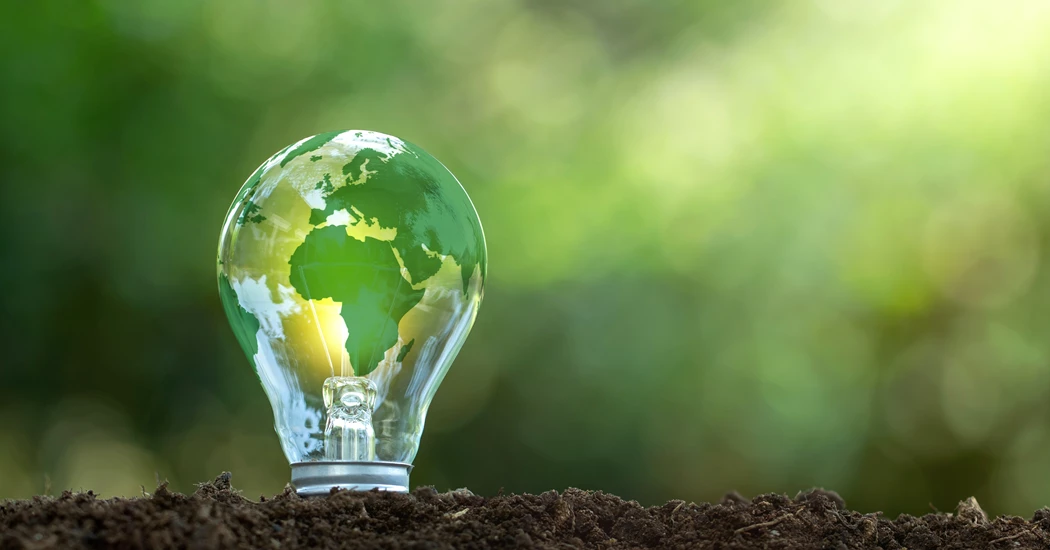Elevating energy and climate ambitions for Africa
In the relentless march toward the 2050 target for net zero emissions, Western energy modelers are painting increasingly ambitious scenarios, hoping to limit global warming to 1.5 degrees centigrade. Yet, hidden beneath the veneer of progress lies a troubling assumption—one that assumes lower per capita energy use in Africa in 2050 from today’s levels, assigning millions of Africans to languish in poverty indefinitely to achieve this vital climate goal.
As the world clamors for cleaner energy and greener futures, the plight of those without access to electricity, predominantly in Africa, often fades into the background. But this oversight comes at a great cost—the cost of forsaking the well-being of hundreds of millions of individuals who deserve better.
Energy poverty, a burden disproportionately borne by Africans, remains a stark reality in the 21st century. While developing Asia has made significant strides in electrification over the past two decades, Africa lags far behind. The statistics are sobering: of the 730 million people worldwide without electricity, a staggering 600 million call sub-Saharan Africa home. Heathrow airport in London consumes more energy than the eight million inhabitants of Sierra Leone — a stark reminder of the cruel disparities that persist.
In the pursuit of solutions, Western experts and policymakers have often overlooked basic human needs, focusing instead on theoretical energy mixes and emissions pathways. A recent study by the Clean Air Task Force, a non-profit, uncovered a glaring truth: most research papers on African energy transitions are written by non-Africans and neglect development outcomes. Instead, they dwell on abstract projections that assume the cycle of poverty continues indefinitely.
Even esteemed organizations like the International Energy Agency (IEA), representing affluent OECD nations, paint a bleak picture for Africa's energy future. Their least ambitious climate scenario for 2050 depicts per capita energy use in Africa falling from today’s levels, crushing the hopes of millions for a better life. The IEA’s more ambitious climate scenarios paint an even bleaker outlook for African poverty.
The 21st century has been heralded as the African Century, with the continent projected to host a quarter of the world's population by 2050. Yet, this grand vision remains hollow without addressing Africa's energy poverty head-on. If we are to uphold the principles of justice and equity, every individual, regardless of geography, deserves the opportunity to thrive.
Imagine a future where African energy consumption mirrors that of South and Central America today—a modest increase in living standards would swell global energy demand far beyond current projections. Envision a world where African nations attain energy use akin to that of the European Union, propelling global energy demand to unprecedented levels. Such scenarios are not fanciful dreams but realistic aspirations that demand attention.
The eradication of Africa’s energy poverty should be a central focus for global climate and energy policy makers. Access to affordable energy is critical to a reduction in poverty and, by association, violent extremism, illegal migration and other challenges that afflict developed and developing nations alike.
As we chart our course towards a sustainable future, we must remember that justice knows no borders. The struggle against climate change cannot be won on the backs of the world's most vulnerable. Rural women should not be forced to sacrifice forests for cooking fuel, nor should children be denied healthcare and education due to lack of electricity.
It is time for Western experts to embrace a more inclusive vision—one that uplifts rather than marginalizes. Let us summon the courage to demand more, not just for combatting climate change, but for ending energy poverty.
If this means recalibrating our expectations and investing in new sources of reliable and affordable energy, then so be it. For without energy justice for Africa, the journey to net zero emissions will remain an incomplete odyssey—a promise unfulfilled, an injustice unresolved.
In the words of Martin Luther King Jr., "Injustice anywhere is a threat to justice everywhere." Let us heed these words as we forge a path towards a brighter, more equitable future for all.
Joseph McMonigle is the Secretary General of the International Energy Forum, an international organization of 72 member governments dedicated to promoting dialogue between energy producers and consumers.
Energy Connects includes information by a variety of sources, such as contributing experts, external journalists and comments from attendees of our events, which may contain personal opinion of others. All opinions expressed are solely the views of the author(s) and do not necessarily reflect the opinions of Energy Connects, dmg events, its parent company DMGT or any affiliates of the same.






